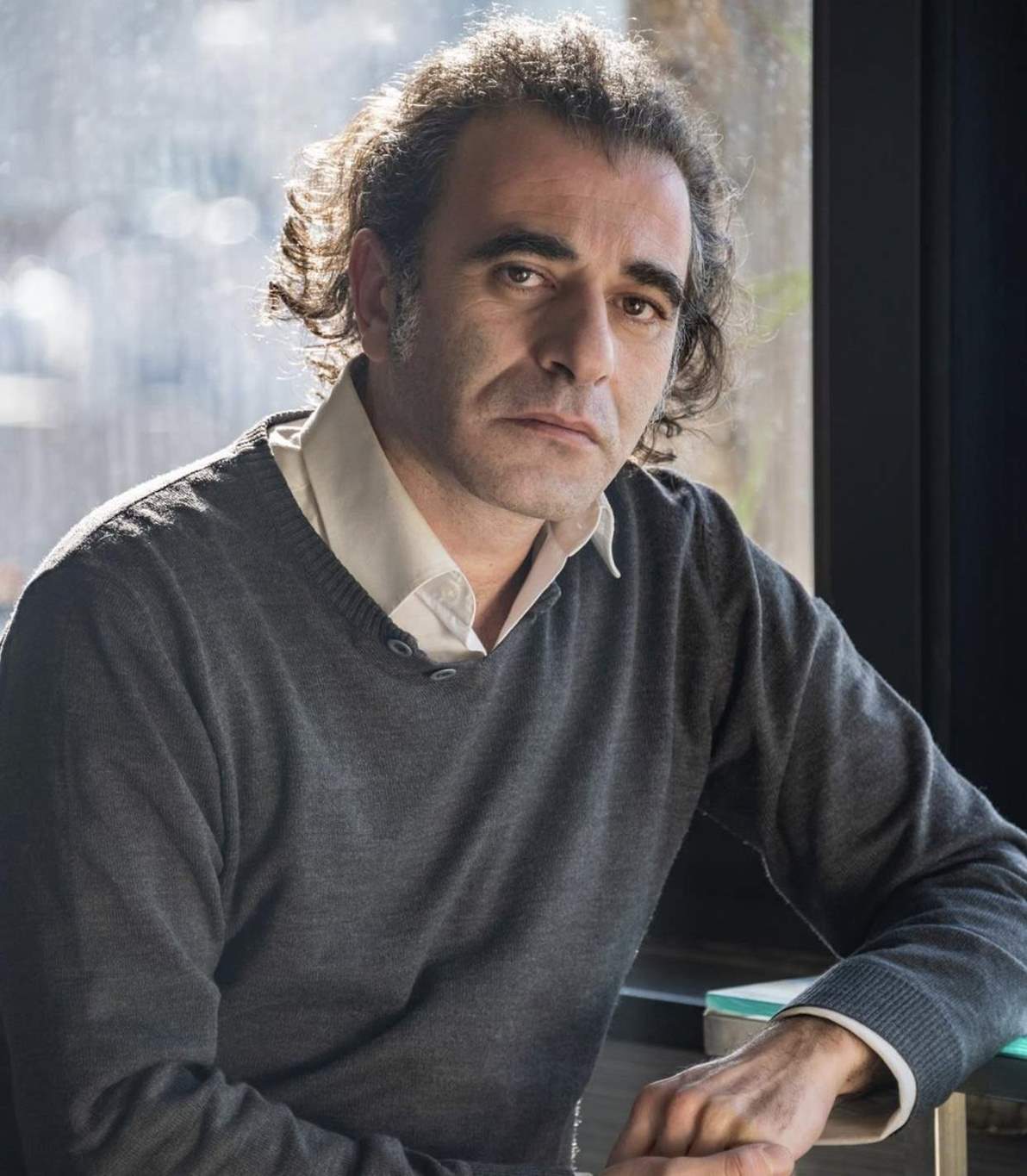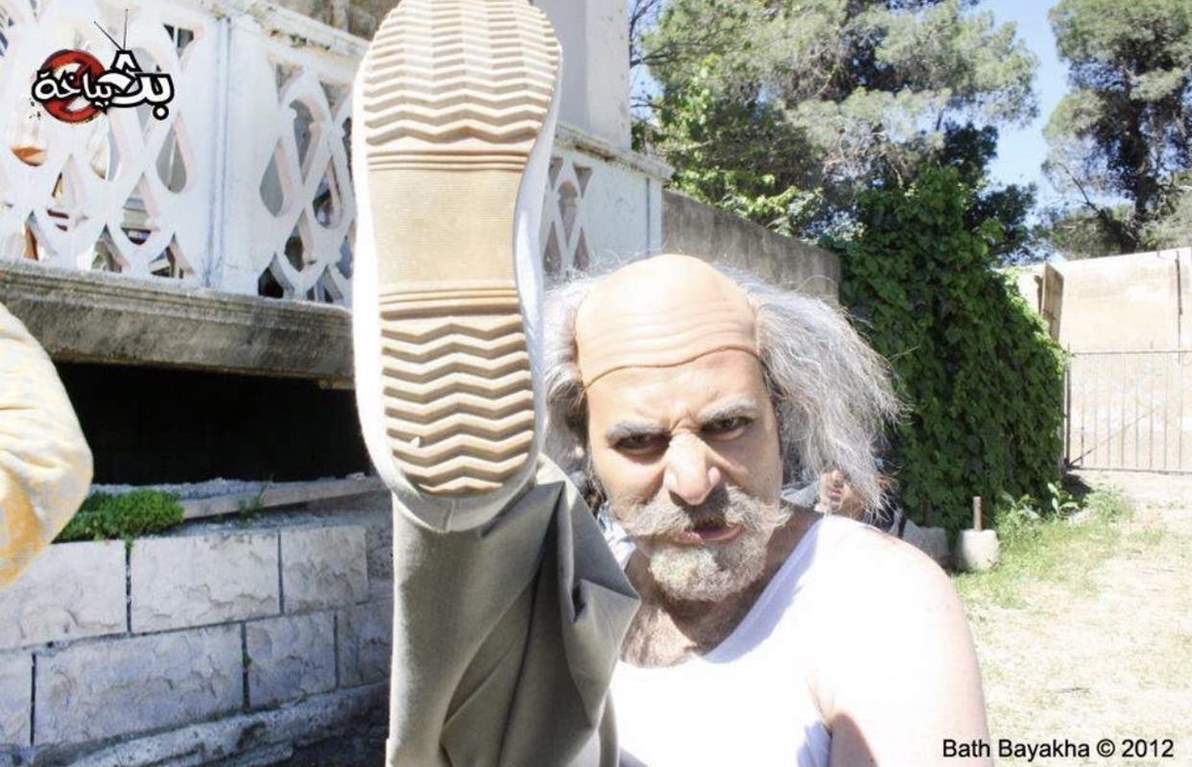AMMAN —
Wissam Tobeileh is a musician first, comedian second, and what many people may not know, a teacher third.
اضافة اعلان
Tobelieh was initially known for his comedy show Bath Bayakha, which went viral almost a decade ago and is considered one of the most vital creations within the Jordanian comedy scene.
However, Tobeileh considers himself to be a musician at heart, and his violin comes first.
Tobeileh received his higher education in both business administration and music studies from the
American University of Beirut.
Tobeileh has been playing music since he was seven years old. He got into it the moment he watched a violin in an orchestra on TV.
He was glued to the TV, mesmerized by the violin.
 (Photo: handout by Wissam Tobeileh)
(Photo: handout by Wissam Tobeileh)
“I watched someone play the violin in an orchestra on TV, and I was glued to the TV, and after I told my father that I liked it, he put me in the after school music activity that was with the school program to learn violin, by the end of the year, my amazing teacher, called my parents and told them to take Wissam to conservatory because he’s talented,” Tobeileh told
Jordan News.
He got into the comedy scene with the viral show Bath Bayakha. Now, he added teacher to his resume. His own children’s enrollment in school influenced him.
“I became a teacher actually when I put my kids into school, I discovered that I can get an excellent rate if I was a teacher there, so I became one. I was skeptical at first, but then I liked it, and I wanted to give what people gave me because I was fortunate to have teachers who pushed me and took me to a higher level,” Tobeileh said.
And now, after
COVID-19, the whole game changed for Tobeileh. Curious about his whereabouts and plans,
Jordan News reached out to conduct an interview.
What inspired you the most, currently, and how did that change, especially with COVID-19?
What inspires me are the people who do new things and are out of the box. What inspires me is the weather, where I am staying, my environment.
Before COVID-19, I was like a running train; I did everything: live shows, acting, teaching. My day was very hectic. When COVID-19 came, it was a break from all of that, a gap that I needed, so I used this time to reflect on myself and make decisions that procrastinated for a long time, and I started going back to music and my roots.
So, what are Wissam Tobeileh’s roots?
My roots are that I am a guy who enjoys music, the company of people, and wants life. My roots are music, writing music, writing for comedy. Before COVID-19, we forgot that we need to live and be happy and make the things that make us happy. After COVID-19, I decided to focus on that, only to do the things that make me happy and not make me ill or overthink. I am naturally an overthinker, so I had to give my brain a break from that.
How do you feel the Jordanian music and comedy scenes are? Do you think the audience is more aware of its importance? Is the content developing, or is the situation still as it is, or it’s growing?
The situation is as it is; people don’t know much about music here, only a select few who were fortunate enough to travel and study abroad are exposed to music. Unfortunately, the education system here, especially the public sector, don’t encourage music and arts as a mandatory class, which is sad because when I went to Lebanon, all of their schools, public or private they give music, drama, arts, and all of that, so kids grow up with a good sense of music. They know what Jazz is, what hip-hop is. They know the genres because they were exposed to them when they were young. Here they are not; they think music is not essential, as a Luxury, and shouldn’t be. But the private sector here is going there; they have creative classes?
How about the comedy scene? Is it developing, or is it discriminatory in the sense that what’s funny is usually making fun of the weakest and most vulnerable like women or people with disabilities? Is it primarily physical comedy rather than intelligent comedy?
Discriminatory comedy is not a form of comedy, and it shouldn’t be; it’s not funny at all. It’s not amusing to discriminate. … I feel the industry in Amman is changing, I saw it before COVID, and of course, with COVID-19, there was a halt, but moving on, people are becoming more aware; they want more clever comedy.
Since Bath Bayakha, do you think people are trying to get out of the box more?
When we introduced Bath Bayakha, we introduced more brilliant comedy, not in your face; people are trying to do the same.
 (Photo: handout by Wissam Tobeileh)
(Photo: handout by Wissam Tobeileh)
How did COVID-19 impact you as an artist on a financial level? Considering the impact, many artists suffered because of the ban on live events.
My job at the school was helpful because I was teaching online because it was a steady income. And it also taught me not to overspend because I used to spend what I made; now, I focus on the essentials, and I don’t chase luxuries. My luxury now is doing music, sitting at home writing. Priorities shifted for sure.
Do you think the comedy scene is now busy with social media influencers becoming comedians out of nowhere? Like the recent shows that are happening on local TV stations, especially during Ramadan?
Comedy and acting are something, and social media is something different. When you want to get these social media influencers to act, it will be weak in all cases because this person is not an actor. Being an actor entitles a lot of work, and you don’t just go into it; you definitely can try it but not immediately have a show for yourself just because you’re an influencer.
Now with the four guys show, you mentioned they did that because they wanted the numbers because the numbers of these influencers were very high, so they assumed the content would be shared a lot. I think it’s wrong and I don’t believe in it, I know that social media influencer gets paid to do things, lie to people about places, food and stuff like that. The social media wave became a wave, and big companies here started investing in that wave.
What would you tell someone starting now how to get on the artist’s right path?
The right path is in their heads. First, it’s doing what you love doing, and secondly, believing that what you are doing is good. Third, is not to put out something you are not happy with. You have to be satisfied with it.
I am perceived as wacky in the head, crazy guy, so whatever content I made, people expect me to do something outrageous and out there, and I like that because that is what I am.
What do you suggest for artists, scenes, and government to improve the scene’s status?
I suggest that the government invests in giving music and art classes in the public sector. A lot of these kids are hidden talents that we can never discover if they don’t try. Allow them to try.
They will know for themselves because many are interested in art. This will change a lot. And that’s why we don’t have many musicians and artists here, barely 100, maybe 200 in a society that should have 20 – 30k possibly, it should be an industry, not just a couple of people here and there. My advice for people who want to get into the scene is to just do their own thing, have a youtube channel, and do your own thing.
Read moreTrending



